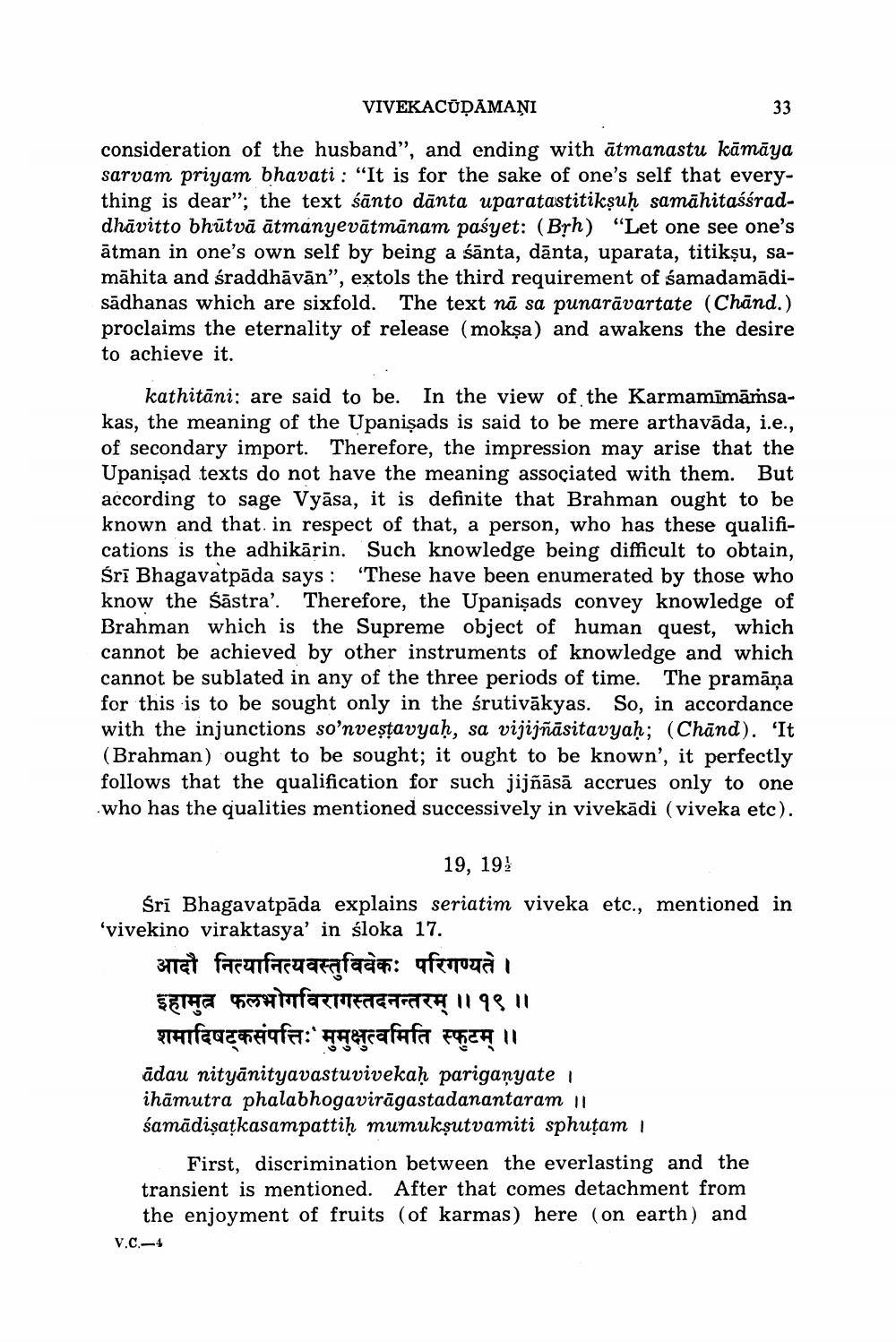________________
VIVEKACŪDĀMAŅI
33
consideration of the husband", and ending with ātmanastu kāmāya sarvam priyam bhavati : "It is for the sake of one's self that everything is dear"; the text śānto dānta uparatastitiksuḥ samāhitaśśraddhävitto bhūtvā ātmanyevātmānam paśyet: (Brh) "Let one see one's ātman in one's own self by being a śānta, dānta, uparata, titikşu, samāhita and sraddhāvān", extols the third requirement of samadamādisādhanas which are sixfold. The text nā sa punarāvartate (Chand.) proclaims the eternality of release (mokşa) and awakens the desire to achieve it.
kathitāni; are said to be. In the view of the Karmamīmāṁsakas, the meaning of the Upanişads is said to be mere arthavāda, i.e. of secondary import. Therefore, the impression may arise that the Upanişad texts do not have the meaning associated with them. But according to sage Vyāsa, it is definite that Brahman ought to be known and that in respect of that, a person, who has these qualifications is the adhikārin. Such knowledge being difficult to obtain, Śrī Bhagavatpāda says: "These have been enumerated by those who know the Śāstra'. Therefore, the Upanişads convey knowledge of Brahman which is the Supreme object of human quest, which cannot be achieved by other instruments of knowledge and which cannot be sublated in any of the three periods of time. The pramāņa for this is to be sought only in the śrutivākyas. So, in accordance with the injunctions so'nvestavyaḥ, sa vijijñāsitavyaḥ; (Chānd). 'It (Brahman) ought to be sought; it ought to be known', it perfectly follows that the qualification for such jijñāsā accrues only to one who has the qualities mentioned successively in vivekādi (viveka etc).
19, 19:
Śrī Bhagavatpāda explains seriatim viveka etc., mentioned in 'vivekino viraktasya' in sloka 17.
आदौ नित्यानित्यवस्तुविवेकः परिगण्यते । इहामुत्र फलभोगविरागस्तदनन्तरम् ॥१९॥
शमादिषट्कसंपत्तिः मुमुक्षुत्वमिति स्फुटम् ।। ādau nityānityavastuvivekaḥ parigaṇyate 1 ihāmutra phalabhogavirāgastadanantaram 11 śamādişațkasampattiḥ mumukṣutvamiti sphutam !
First, discrimination between the everlasting and the transient is mentioned. After that comes detachment from
the enjoyment of fruits (of karmas) here (on earth) and V.C.-4




